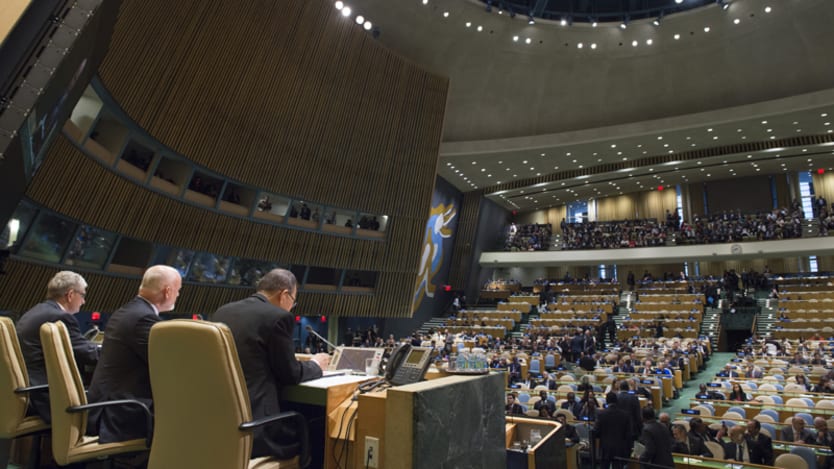
World leaders gather today for the U.N. Summit on Refugees and Migrants to agree on a more coordinated global response to escalating levels of forced displacement. It’s vital that data and evidence are at the forefront of decision making. Without adequate data on forcibly displaced people and financing, it’s not possible to fill financing gaps or target resources effectively in line with needs.
Last week, Development Initiatives published a fact sheet on forced displacement, poverty and financing. It provides a snapshot of available data and evidence on people affected by forced displacement, the allocation of available resources, and funding mechanisms – highlighting areas in which data must be strengthened for an effective and durable response.
Better understanding of long-term livelihood needs
The fact sheet shows how important it is to move beyond short-term emergency assessment and financing cycles and target longer-term livelihood assistance for refugees through development frameworks. Most refugee situations are protracted, and it’s estimated that refugees are displaced for 17 years on average. There is a pressing need to foster more durable solutions.
Understanding the levels of poverty among refugee populations is a vital part of this, yet refugees were only included in national poverty surveys by seven of the 20 countries hosting the largest numbers of refugees in 2015. In another seven countries, methodological survey documents didn’t state whether refugees were included or not. There must be a clearer and more systematic methodological approach for including refugees in national poverty surveys.
Fostering more durable solutions
Rising global levels of forced displacement, which reached a record high of 65.3 million in 2015, have driven an increase in humanitarian financing requirements since 2013. While humanitarian appeals play a key role in responding to refugee flows, they are often ill-suited to addressing the protracted nature of most displacement and people’s longer-term livelihood needs.
There is a mismatch between what we know and how we respond. We know that refugees don’t only need shelter and food assistance over a one-year timeframe but also require longer-term livelihood and employment opportunities. Yet, we continue to use short-term response models.
However, some new initiatives are beginning to emerge, which seek to break with shorter-term cycles. Multilateral development banks are playing a key role. For example, the Middle East and North Africa Financing Initiative was established by the World Bank, U.N. and Islamic Development Bank in 2015 to provide Lebanon and Jordan with concessional finance. Meanwhile the European Bank for Reconstruction and Development established the Community Resilience Program in July 2016 to support municipal services in Turkey and Jordan.
With most people displaced globally now in middle income countries (79 percent of the total) and low availability of national resources to respond to the needs of refugees in many of the major refugee-hosting countries, these new financing mechanisms signal a positive shift toward greater global responsibility sharing and support for host countries.
Clear opportunities for improving data and financing
Building on these new initiatives as a first step, a tailored and diverse set of financing instruments must be deployed to support host countries in meeting the immediate and longer-term needs of refugees.
The U.N. summit, President Obama’s Leaders’ Summit on Refugees and the delivery of the Comprehensive Refugee Response Framework present landmark opportunities to achieve this and address the gaps in poverty data by strengthening commitments and providing support to host countries in this area.
The commitment to “improve data collection” and strengthen the role of national authorities in the agreed draft Outcome Document for the U.N. Summit (paragraph 2.19) provides the broader framework through which efforts to strengthen poverty data on refugees can be achieved. For this to be put into practice, such commitments must be explicitly reflected in the Comprehensive Refugee Response Framework and subsequent Global Compact on refugees.
Check back on our coverage of New York #GlobalDev Week here, follow @Devex and join the conversation using #GlobalGoals.




